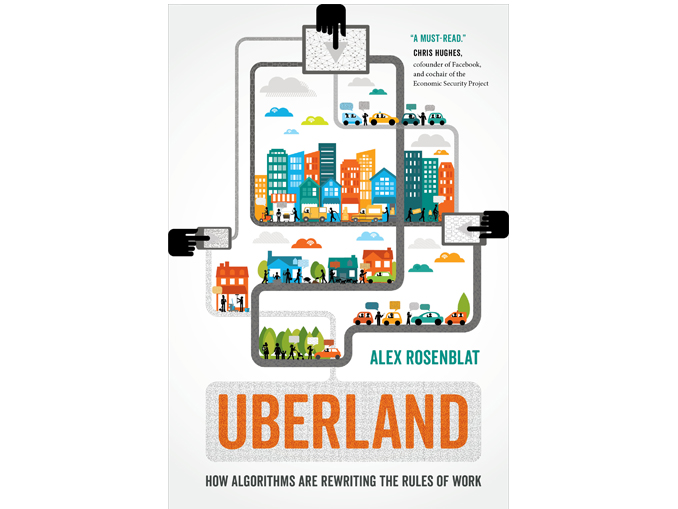Reviewed by Susan Fader, Fader & Associates, Teaneck, NJ, susanfader@faderfocus.com
The rapid evolution of technology is causing the uberization of everything. The technology emanating from Silicon Valley not only is transforming how we work and the employer/employee relationship, but also is causing major CPG companies to rethink how they approach insights.
Technology is changing people’s expectations of products and brands. A central component of this technological shift is algorithms, and the neutral language of technology is masking the powerful influence and role that algorithms have in the New Economy. Therefore, it is imperative that members of society and specifically those involved either directly or indirectly in the insights role have a better understanding of the impact algorithms are having on our definition of work and the way decision-making is being transformed. And probably one of the best ways to understand the effect of algorithms is to delve into the world of Uber.
Uberland: How Algorithms are Rewriting the Rules of Work, by Alex Rosenblat, focuses on pulling back the curtain on how algorithms are manipulating both workers and consumers. It is a fascinating read based on solid and extensive investigative reporting.
Alex Rosenblat is the ideal person to write this book. She is a technology ethnographer whose firsthand experience of riding 5,000 miles with Uber drivers in more than twenty-five cities in the United States and Canada over a four-year period, coupled with daily visits to online Uber Driver forums, and face-to-face discussion with senior Uber employees, was used as a foundation for writing this book. Just having the chance to hear these Uber drivers’ stories is reason alone to read this book.
Rosenblat was the one who broke the story about how Uber was using phantom cars. The Uber app showed multiple cars that in reality did not exist, and when a rider clicked to book a ride the phantom cars disappeared. That is how what appears to be an Uber one-minute wait when booked was really a twelve-minute wait.
In Uberland, Rosenblat points out that “one of the fascinating aspects of Uber’s approach is that, according to the company, its drivers are not workers at all—they are consumers of Uber’s technology services, just as passengers are. This book (is) about how Uber created a fundamental cultural shift in what it means to be employed.”
Uberland shows how Uber is trying to portray itself as providing technology that acts “as powerful engines of job creation…(and) spins itself as an altruistic company.” However, while Uber tries to position its narrative solely on job creation, Uberization has contributed to the serious erosion of workers’ rights and protections. There may be over three million Uber drivers worldwide, but a quarter of these workers turn over every three months. In addition, many drivers do not have a realistic picture of how much their out-of-pocket expenses (car payments, gas, car repairs, etc…) eat away at their earnings.
For some Uber drivers, Uber is their primary source of income, but part of what keeps the Uber engine going is that there also are many drivers whose primary motivation for driving is not that it is their primary source of income but instead are driving as something to do in their spare time, or even for fun (e.g., they like to meet people). These hobbyists “have fewer economic incentives to advocate for better pay.”
Rosenblat’s solid research shines through, and I thoroughly enjoyed reading this book. The only caveat: There are a couple of typos that, while they do not miscommunicate, do mar this stellar and very important analysis. While Rosenblat’s book deserved a better proofreader, Uberland is still a fascinating read.


Be the first to comment